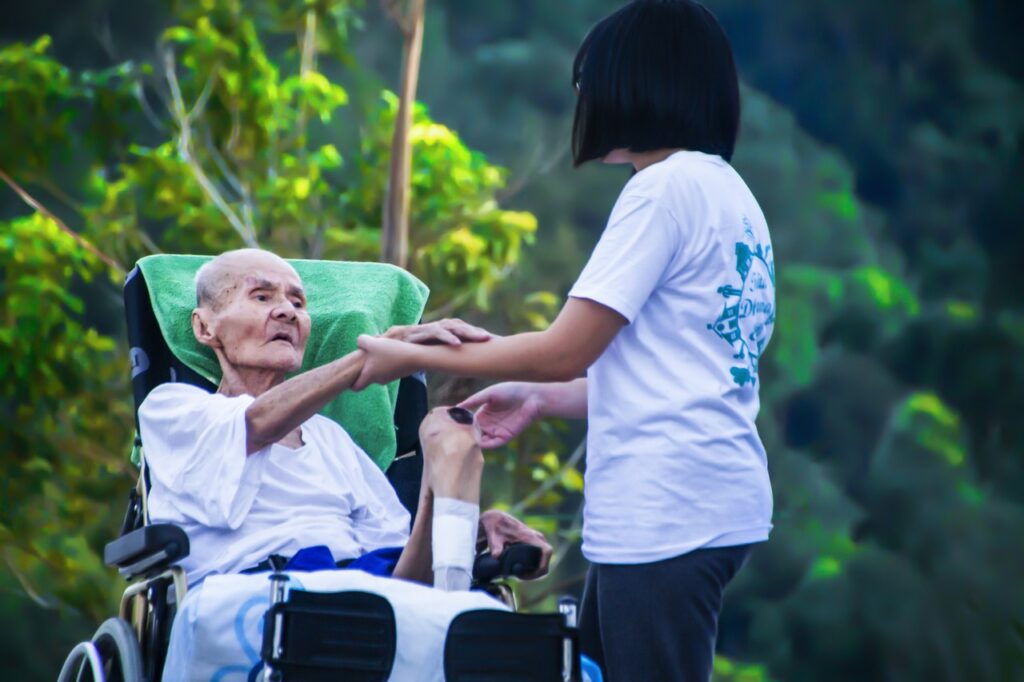In the realm of caregiving, one of the most critical yet often overlooked skills is the ability to listen attentively to patients. Understanding a patient’s needs goes beyond merely addressing their physical ailments; it encompasses recognizing their emotional and psychological requirements as well.

For both family caregivers and professional caregiving services, honing the skill of listening is essential for providing holistic and compassionate care. However, professional caregiving services have an edge due to their structured training and experience in empathetic listening, which allows them to support families more effectively. At Homecare Cambodia our staff is trained in listening to our customers.
The Role of Listening in Effective Caregiving
Listening is the cornerstone of effective caregiving for several reasons:
- Building Trust and Rapport: Patients are more likely to open up about their concerns and preferences when they feel heard and understood. This establishes a strong foundation of trust, which is crucial for any caregiving relationship.
- Identifying Needs and Preferences: By actively listening, caregivers can gather valuable information about the patient’s likes, dislikes, routines, and specific needs. This personalized approach ensures that the care provided is tailored to the individual, enhancing their comfort and well-being.
- Enhancing Emotional Support: Many patients, especially those dealing with chronic illnesses or aging, experience emotional stress and anxiety. Being able to express their feelings to someone who listens empathetically can significantly alleviate their emotional burden.
- Improving Compliance and Cooperation: When patients feel their voices are heard, they are more likely to comply with treatment plans and cooperate with caregivers. This collaborative approach leads to better health outcomes and a smoother caregiving process.
Professional Caregiving Services: Trained to Listen Without Prejudice
Professional caregiving services bring a level of expertise that is particularly beneficial in the context of listening and understanding patient needs. We can offer more than a family does. Here’s why:
Comprehensive Training
Professional caregivers undergo extensive training that emphasizes the importance of active listening and communication. They learn techniques to:
- Ask Open-Ended Questions: Encouraging patients to share more about their experiences and feelings.
- Practice Reflective Listening: Paraphrasing and summarizing what the patient says to ensure understanding and validation.
- Read Non-Verbal Cues: Recognizing body language and other non-verbal signals that provide insights into a patient’s emotional state.

A critical component of caregiver training is developing awareness of personal biases and prejudices. Professional caregivers are taught to:
Bias and Prejudice Awareness
- Recognize and Address Biases: Identifying any unconscious biases they might hold and actively working to mitigate them.
- Maintain Neutrality: Providing care without letting personal judgments affect their interactions with patients.
- Foster Inclusivity: Being sensitive to the diverse backgrounds, cultures, and beliefs of patients, ensuring that everyone receives respectful and equitable care.
Experience and Continuous Learning
Professional caregiving services often have protocols in place for continuous education and training. This ensures that caregivers remain updated on best practices and can adapt to new challenges effectively. Their experience in dealing with a variety of patients also equips them with the skills to handle complex situations with greater empathy and understanding.
Supporting Families Through Professional Caregiving
Families often face significant challenges when caring for a loved one. The emotional toll, coupled with the practical demands of caregiving, can be overwhelming. Professional caregiving services offer invaluable support by:
- Providing Respite: Allowing family members to take breaks, reducing burnout and stress.
- Offering Expertise: Bringing specialized knowledge and skills that enhance the quality of care.
- Ensuring Consistency: Delivering reliable and continuous care, which is crucial for patients with chronic or severe conditions.
- Facilitating Communication: Acting as a bridge between healthcare providers and families, ensuring that everyone is informed and involved in the care process.
We want to bring affordable home care to Cambodia, on a professional level. That’s why we at Homecare Cambodia set the standards high and evaluate our staff regularly. Our carers have to submit daily reports, to ensure we can detect even the slightest changes in the behavior of our customers – which often comes way before symptoms of a disease.

Leave a Reply